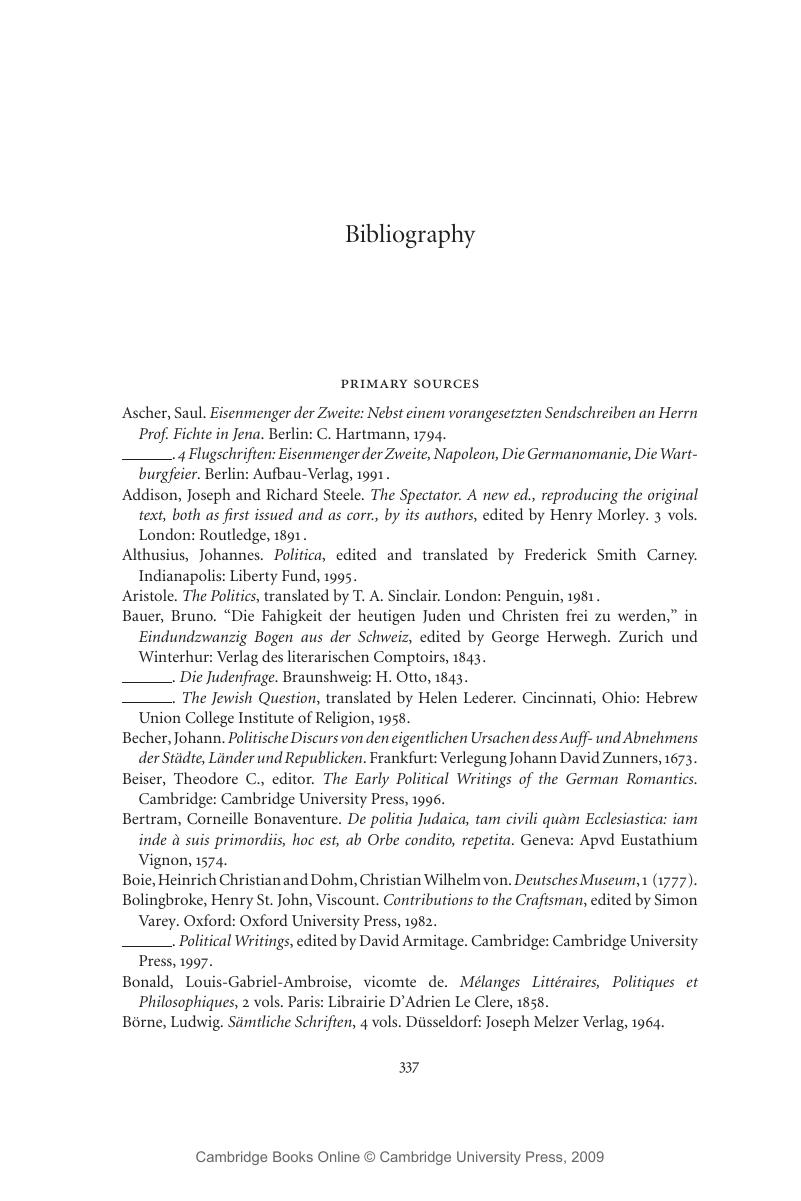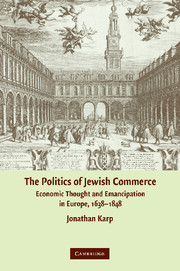Book contents
- Frontmatter
- Contents
- Acknowledgments
- Introduction
- 1 This Newfangled Age
- 2 From Ancient Constitution to Mosaic Republic
- 3 A New System of Civil and Commercial Government
- 4 The Natural Relation of Things
- 5 A State within a State
- 6 The Israelites and the Aristocracy
- 7 Jews, Commerce, and History
- 8 Capitalism and the Jews
- Afterword: Industrialization and Beyond
- Notes
- Bibliography
- Index
- References
Bibliography
Published online by Cambridge University Press: 18 July 2009
- Frontmatter
- Contents
- Acknowledgments
- Introduction
- 1 This Newfangled Age
- 2 From Ancient Constitution to Mosaic Republic
- 3 A New System of Civil and Commercial Government
- 4 The Natural Relation of Things
- 5 A State within a State
- 6 The Israelites and the Aristocracy
- 7 Jews, Commerce, and History
- 8 Capitalism and the Jews
- Afterword: Industrialization and Beyond
- Notes
- Bibliography
- Index
- References
Summary

- Type
- Chapter
- Information
- The Politics of Jewish CommerceEconomic Thought and Emancipation in Europe, 1638–1848, pp. 337 - 362Publisher: Cambridge University PressPrint publication year: 2008



